IB Program
 Why the IB Diploma Programme is a good fit for Hong Kong students
Why the IB Diploma Programme is a good fit for Hong Kong students
Every parent wants the best for their children, and a strong academic background is one of the surest ways to 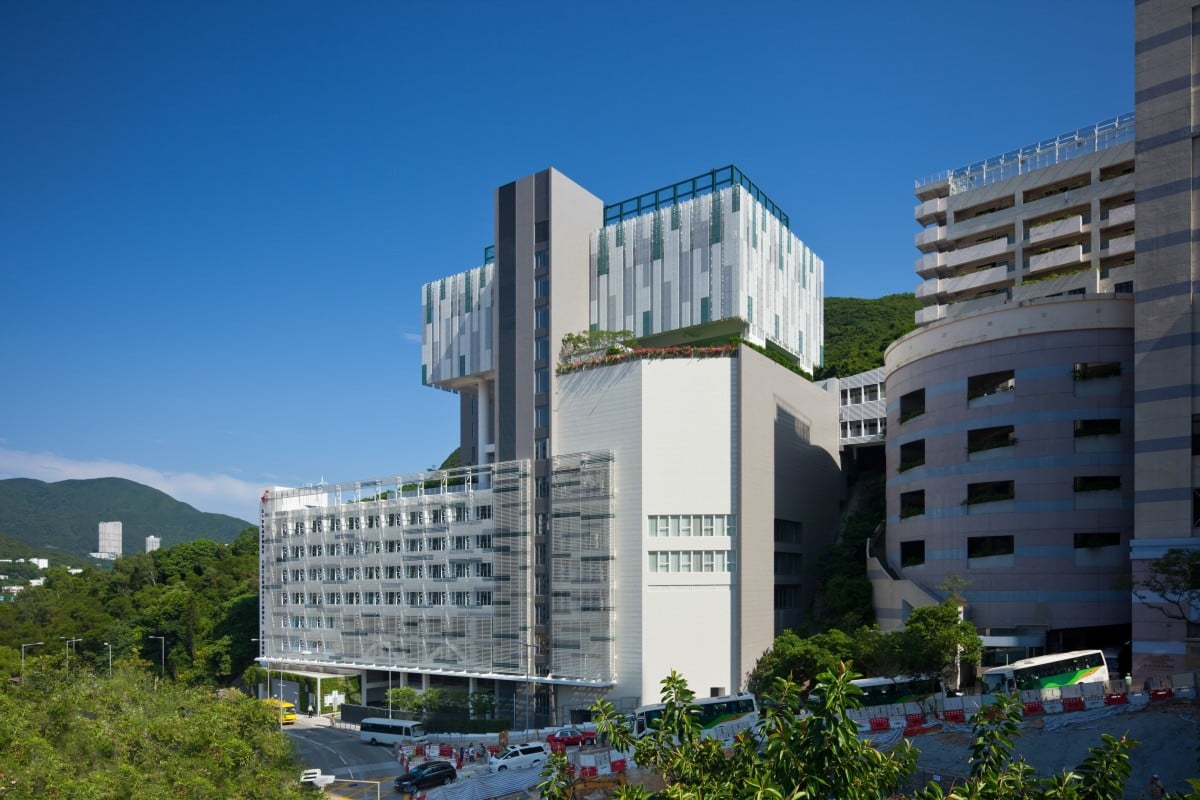 help prepare them for a bright future. In Hong Kong, secondary students – and their parents – can be overwhelmed by choice. There is the Hong Kong Diploma of Secondary Education (HDKSE), the standard entrance exam for the city's universities; British A-levels; and the American AP courses – each based on a particular national academic system.
help prepare them for a bright future. In Hong Kong, secondary students – and their parents – can be overwhelmed by choice. There is the Hong Kong Diploma of Secondary Education (HDKSE), the standard entrance exam for the city's universities; British A-levels; and the American AP courses – each based on a particular national academic system.
Increasingly considered above all of them, at least by the city's international schools, is the International Baccalaureate Diploma Programme (IBDP).
Photo: SIS HK Singapore International School, Secondary Section campus.
Simon Misso-Veness, deputy principal, head of English international stream K-18 at the German Swiss International School (GSIS), describes the diploma as a “global educational philosophy” that promotes “intercultural understanding and respect”.
Created at the International School of Geneva in 1968, the IBDP was intended to be a globally recognised qualification, one that would make it easier for students to acclimatise to academic systems around the world.
Today, IB programmes are available in 144 countries and the diploma is widely recognised as one of the most comprehensive curriculums available.
The IBDP, which is for students between 16 and 19 years of age, encompasses six subjects over two years. This includes a 4,000-word extended essay, a Theory of Knowledge course, which Misso-Veness describes as “critical thinking on the nature of knowledge”, as well as a series of creative and service projects. Taken together, the aim is to create lifelong learners who are active, compassionate members of society.
“The IB Diploma is grounded in a clear mission,” says Misso-Veness, “that seeks to bind the whole [academic] experience together, and is focused on developing individuals who will be equipped not just for academic life, but also for the adaptability required for productive lives in the middle of the 21st century.”
Underpinning the entire programme is the IB Learner Profile, consisting of 10 attributes that define a “contemporary, independent student”. This includes international-mindedness and multilingualism.
“Universities across the world are very keen on the IB Diploma as they know that graduates will be independent learners – critical and innovative thinkers who can operate at a conceptual level. In terms of contributing to student life, many IB graduates have a positive grounding in creative, active and service projects, which are highly valued by many universities … A successful IB graduate will have developed a range of attributes that are not only valued at university but are essential to independent study,” says Misso-Veness.
Hong Kong schools have offered various IB programmes since 1988. Of the 65 institutions that currently offer its curricula, which begins with a Primary Years Programme for children as young as three, 33 are authorised to implement the Diploma Programme.
Singapore International School (SIS) has offered the IBDP since 2011 and its students are registered across 20 different subjects. Pupils typically study three subjects at a higher level and three at a “standard” level.
Student council president Justine Chan Tin-nok feels the challenging programme has prepared her well for university: “Doing it was a good blend of diving deep and swimming wide, allowing me to maintain a breadth and depth of interest. This gave me the flexibility to apply to universities in various countries around the world who might prioritise different academic learning styles.” Chan speaks with some authority, having received an offer to begin studying medicine at Cambridge in September.
“Personally, the IB Diploma has helped me to foster good habits and time management skills while pushing me to become more resilient and focused,” says Alex Yu Shing-chun, who has an offer from Yale University. “There were so many things I thought were 'impossible' when I started my IB Diploma journey. Now that I'm on the other side, I feel proud and am more confident that I can do anything I put my mind to.”
One notable difference between the IB Diploma and other curricula is its emphasis on critical thinking and independent research skills. Students in this programme aren't taught to memorise and repeat (a common criticism of the Hong Kong education system is that it leans towards rote learning and standardised testing). Instead, IBDP students are encouraged to think freely and analyse, creating their own conclusions based on research and evaluation – skills that will serve students well throughout their lives.
“I think that IB has really helped to make me more of a global thinker,” explains Kristy Chan Tin-wing. The co-president of SIS's Community Council offers her economics coursework as an example. “I really had to keep up with current affairs and keep an eye on the news to stay relevant and informed. IB helped me to really look at it with a more analytical eye and form my own opinion on what's happening around the world.”
Having completed the rigorous two-year course, Chan reflects positively on the experience. “It's a tough programme, but definitely worth it. I've learned so much. I think I'm a better student, a better leader and a better citizen for it.”
Though there are myriad benefits to be gained from the IB Diploma programme, it is intentionally demanding and Misso-Veness admits that it is not a fit for every student. “There are excellent academic programmes, such as A-levels and HKDSE, which will also get you to where you want to go.”
But for those who are ready for the challenges, he believes the IBDP will prepare them for future study, and beyond: “The IB Diploma prepares [pupils] for university and helps them appreciate the complexity of the world while acknowledging their shared guardianship of the world and its resources for future generations.”
Source: South China Morning Post - SCMP
If you would like to know more about IB and would like to change from local school to international school and need our assistance, please feel free to contact us at 3182 6925.
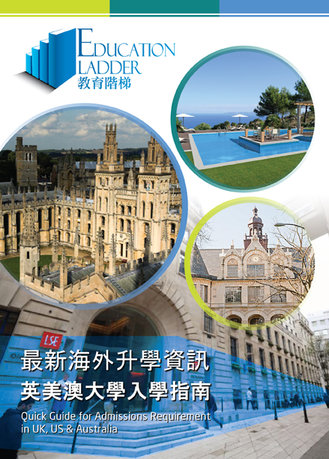
在DSE 放榜前, 有否現在就準備為將來鋪路呢?
當決定留學海外時,要考慮的事情十分多,無論你升學的目的是什麼,或你需要什麼協助,我們都會為你搜集最有用的資訊,加深你對海外升學的認識,從而作出最好的決定。教育階梯非常樂意透過這本電子書籍,為大家分享熱門留學地方的資訊。 教育階梯將於6月5日出版<海外升學指南>,包括英國、美國、澳洲大學及一般升學須知,內有全球大學排行榜及介紹其頂尖大學, 以
Read More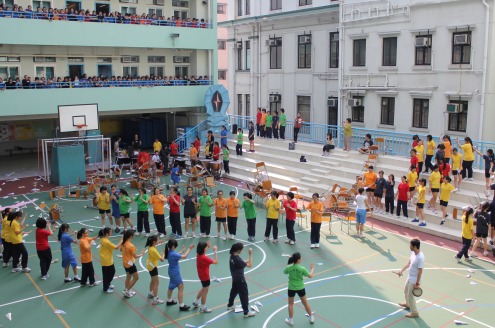
全港中學教育競爭力評比
《年度全港中學/小學/幼稚園教育競爭力評比》致力於建立一個基於瞭解香港各中學/小學/幼稚園教育現狀的校風聲譽、教育竞争力研究數據採集、分析、應用和發佈的平台,並為家長選校時提供重要的依據,同時也為各校教學發展的持續、追蹤研究提供數據分析依據,通過每年度的教育競爭力評比,學校可看到自己在業內的位置,看到學校的影響力,看到同行其他學校的變化,可以更好地同表現優異的學校互相借鑒和學習,相互提升未來
Read More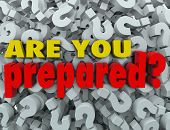
掌握應試技巧 IELTS奪高分
於剛完結的「第十六屆香港國際教育展」中,英國文化協會的考試服務經理Monita向大家分享了IELTS考試的應試貼士 計劃海外升學的同學,如想獲得心儀學校的錄取,必要通過"IELTS(雅思)國際英語水平測試"這一關,因IELTS是全球最普及,超過8,000間院校及機構認可為英語能力的指標,考生必要在試前作好準備,以獲取理想的入學成績。在剛完結的「第十六屆香港國際教育
Read More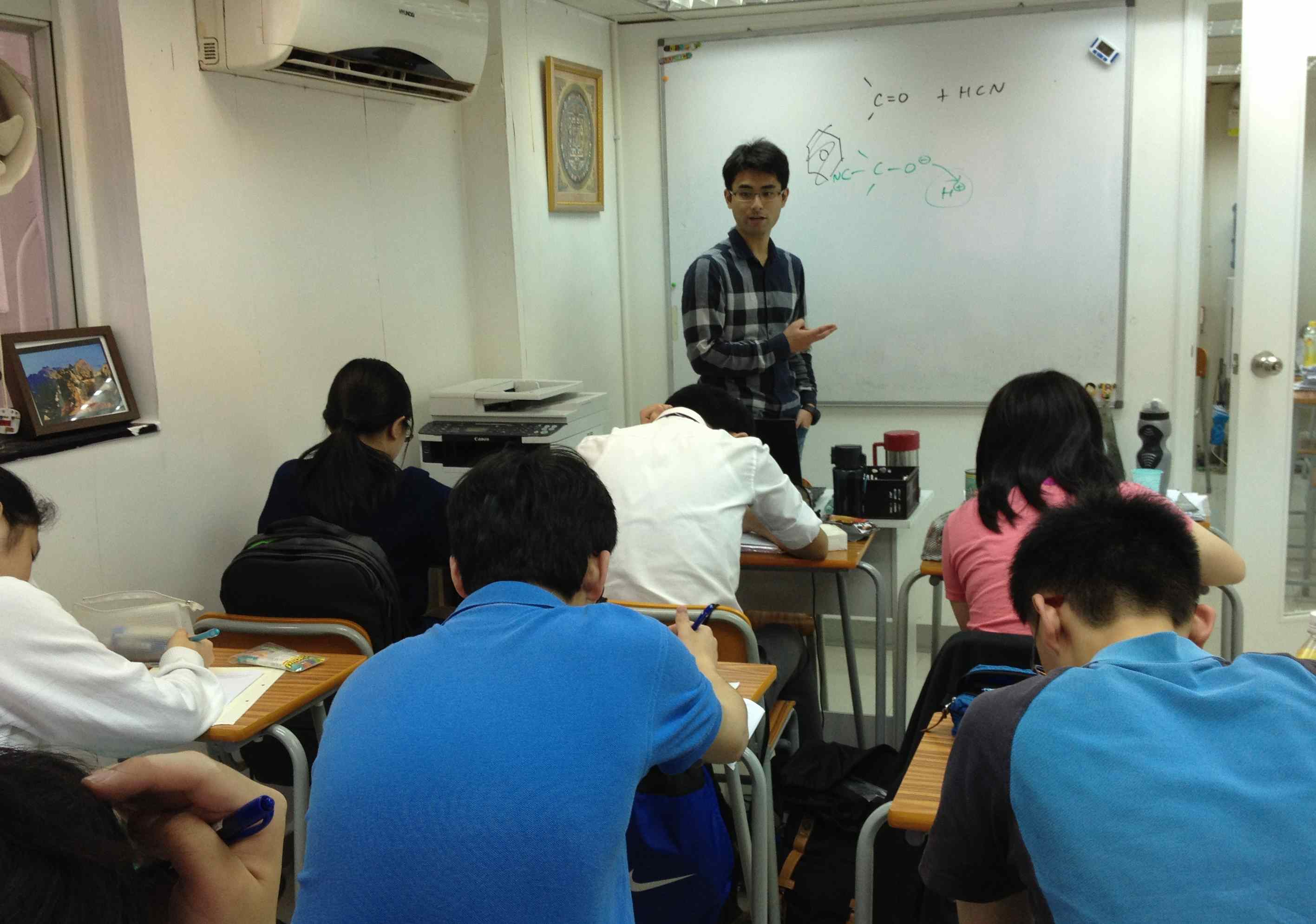
化學科考試攻略
不經不覺,今年的香港中學文憑主科考試已完成得差不多,同學們接下來就要專心溫習其他科目。今次我們找來有七年教理科經驗的潘蔚健老師(Mr. Poon) 來提供一些溫習化學科時要注意的事項,他任教過的學生中,不乏成績出眾的學生,透過拔尖踏上大學之康莊大道,亦有學生越級報考IGCSE,成功
Read More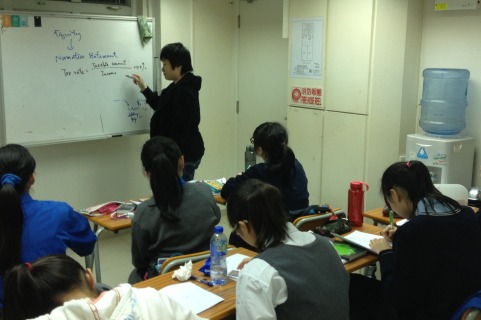
通識考試攻略
【DSE還有數天就是考通識的大日子,究竟在這剩餘的幾天裡,應該繼續埋首背誦資料數據,抑或多看報紙作最後衝刺?在這個重要時刻,我們找來曾任教拔萃女書院通識科的老師彭芷君(Ms. Pang)來提供一些考 還有數天就是考通識的大日子,在這剩餘的幾天裡,應該繼續埋首背誦資料數據,還是多看報紙作最後衝刺?在這個重要時刻,我們找來曾任教拔萃女書院通識科的老師彭芷君(Ms.
Read More
英文辯論
無論是舊式公開考試(香港中學會考及香港高級程度會考),抑或是新推出的三三四香港中學文憑試,被列入核心科目的中國語文及英國語文佔有無可取代的重要角色。考生如果不能取得3級或以上的成績,升讀大學之路就隨之幻滅。 英語對很多中學生來說,一直都是最弱的一環,在香港,大部份學生除了上堂聆聽老師講英語之外,自己根本甚少機會可以開口練習,更遑論課堂以外的練習了。 香港考試及評核局(考評
Read More







